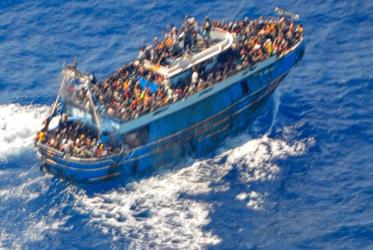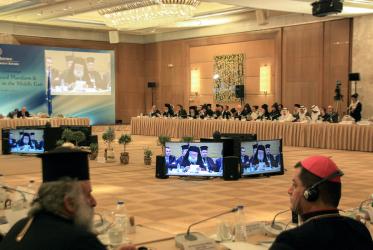Displaying 1 - 11 of 11
Erhard Hermansen: “The church in South Sudan needs our prayers"
09 September 2019
Dealing with traumas and healing of wounds
04 June 2019
WCC offers condolences in wake of Great Britain attack
23 March 2017
International conference addresses challenges in the Middle East
22 October 2015







